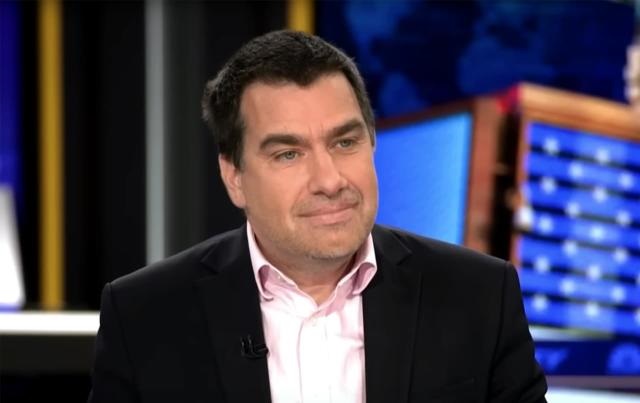- Introduction
- Brief introduction of the strategist
- Importance of his role at JPMorgan
- Who is the Bearish Strategist?
- Background and career highlights
- His reputation on Wall Street
- Key Market Calls
- Notable bearish predictions
- Impact on the market
- The Rationale Behind His Bearish Outlook
- Economic indicators and analyses
- Personal investment philosophy
- Major Predictions and Their Outcomes
- Successful predictions
- Missed predictions
- Impact on JPMorgan
- How his departure affects JPMorgan
- Reactions from within the company
- Market Reactions to His Departure
- Immediate market responses
- Long-term market implications
- What’s Next for the Strategist?
- Speculations on his next move
- Possible career paths
- Who Will Replace Him?
- Potential candidates
- JPMorgan’s succession plan
- Strategist’s Legacy
- His influence on the market
- Long-term effects of his market calls
- Public and Media Reactions
- Analysts’ opinions
- Media coverage
- Lessons for Investors
- What investors can learn from his approach
- Importance of bearish perspectives
- Conclusion
- Summarizing the strategist’s impact
- Final thoughts on his departure
- FAQs
- Who was Wall Street’s most bearish strategist at JPMorgan?
- What were some of his major market predictions?
- How did his predictions impact JPMorgan?
- What are the speculations about his next career move?
- What can investors learn from his market outlook?
Wall Street’s Most Bearish Strategist is Leaving JPMorgan: An Overview
Introduction
Change is in the air at JPMorgan as Wall Street’s most bearish strategist bids farewell to the firm. Known for his cautious market outlooks and bearish predictions, his departure marks the end of an era. But who is this strategist, and why has he garnered such attention?
Who is the Bearish Strategist?
This renowned strategist, known for his unyielding bearish stance, has been a significant figure on Wall Street. With a career spanning decades, his insights and analyses have shaped market perceptions and influenced investment strategies.
Key Market Calls
Throughout his tenure, the strategist has made several notable bearish predictions. These calls often went against the grain, challenging the prevailing market optimism. His ability to foresee market downturns earned him both respect and skepticism in equal measure.
The Rationale Behind His Bearish Outlook
What drove this strategist’s bearish outlook? It wasn’t mere pessimism but a careful analysis of economic indicators. He meticulously examined factors like inflation rates, economic growth, and market bubbles, forming a philosophy that emphasized caution over exuberance.
Major Predictions and Their Outcomes
Some of his predictions hit the mark, like forecasting the 2008 financial crisis. Others, however, did not materialize as expected. His mixed track record highlighted the complexities of market forecasting and the inherent uncertainties involved.
Impact on JPMorgan
His departure leaves a noticeable gap at JPMorgan. Colleagues and clients alike have expressed mixed emotions, recognizing his contributions while speculating about the future. The bank’s strategies might pivot, reflecting a shift from his traditionally bearish outlook.
Market Reactions to His Departure
The news of his exit sent ripples through the market. Investors and analysts are keenly watching for immediate reactions and long-term implications. Will his departure spark a shift in market sentiment, or will his influence persist?
What’s Next for the Strategist?
As he leaves JPMorgan, speculation is rife about his next move. Will he join another financial institution, start his own advisory firm, or perhaps shift towards a more academic role? The financial community eagerly awaits his next steps.
Who Will Replace Him?
JPMorgan’s succession plan is under scrutiny. Potential candidates are being considered, and the firm aims to find someone who can balance both bullish and bearish perspectives, ensuring a comprehensive market analysis approach.
Strategist’s Legacy
His legacy is one of caution and critical analysis. He has influenced how investors view market risks, underscoring the importance of considering bearish perspectives in a predominantly bullish environment.
Public and Media Reactions
The media has been abuzz with his departure, and analysts have shared their opinions. Some praise his insights, while others critique his persistent bearish stance. The mixed reactions reflect his polarizing impact on the market.
Lessons for Investors
What can investors learn from his approach? His emphasis on caution, thorough analysis, and the importance of considering various market scenarios offers valuable lessons. In an ever-volatile market, his strategies provide a counterbalance to unchecked optimism.
Conclusion
The departure of Wall Street’s most bearish strategist from JPMorgan marks a significant moment. His market calls, rooted in detailed analysis and caution, have left a lasting impact. As the financial world awaits his next move, the lessons he imparted remain relevant for investors navigating the complexities of the market.
FAQs
- Who was Wall Street’s most bearish strategist at JPMorgan? The strategist, renowned for his bearish market predictions, played a key role in shaping JPMorgan’s market outlook.
- What were some of his major market predictions? He notably predicted the 2008 financial crisis among other downturns, although not all his predictions came to fruition.
- How did his predictions impact JPMorgan? His market calls influenced JPMorgan’s strategies and client advisories, emphasizing caution and risk management.
- What are the speculations about his next career move? There is speculation that he might join another firm, start his own advisory service, or shift towards academia.
- What can investors learn from his market outlook? Investors can learn the importance of considering bearish perspectives, thorough analysis, and balancing optimism with caution.

